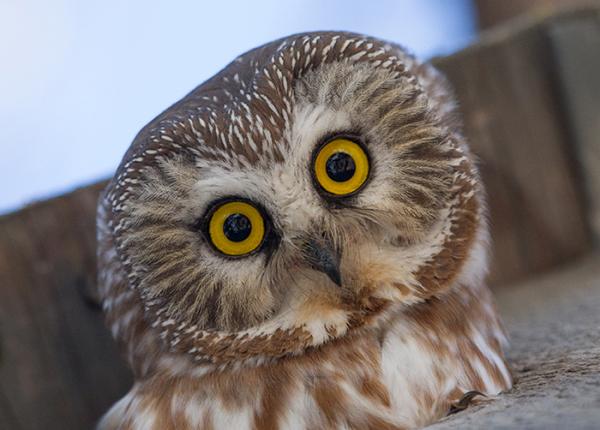Photo by Paul Bannik
Northern Hawk Owls (Surnia ulula) A male Northern Hawk Owl attempts to feed a disinterested fledgling. Northern Hawks are among several species that specialize in small mammals and can have very large broods of several youngsters when voles populations are high. Such owls frequently cache excess prey when youngsters have had their fill and attempt to deliver the same meals later.


This got me to go down a bit of a dive into reading about stomach acid. Owl have weaker stomach acid than we do, which seems odd to me, as they eat things prone to a number of diseases and worms, etc, and they will store food to feed later to the babies. It had me wondering how that isn’t a food safety issue.
I didn’t find any conclusive answer. Most studies seemed to focus more on humans, and how our very acidic stomachs may be killing off the important gut microbiomes. I wonder if that makes the difference for them. Herbivores have the least acidic stomachs, since their food is generally the safest, and they need a rugged gut biome to have enough good bacteria to break up all the fiber.
I thought it was interesting that maintaining our very low pH stomach acid has a significant metabolic price, which may also be why we can “afford” it while wild animals can’t, since we tend to have much more stable access to high quality food that can be eaten without as many symbiotic microbes, for better or worse.
Source 1
Source 2